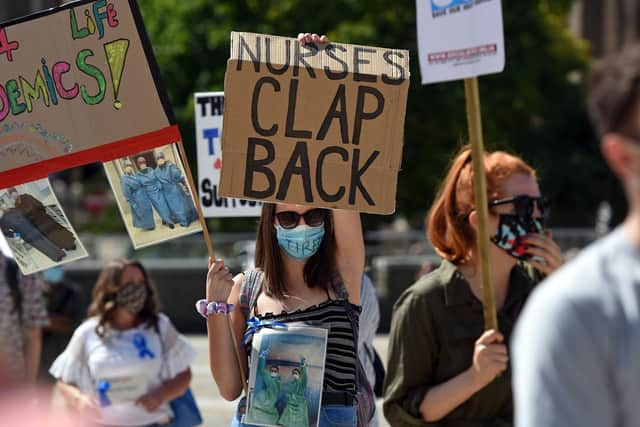Nurses at Wigan's hospitals to keep working as strikes are held elsewhere in dispute over pay
and live on Freeview channel 276
Up to 100,000 nursing staff are set to walk out on Thursday after talks with the Government broke down on Monday night, with thousands of appointments expected to be cancelled in the next few days.
Members of the Royal College of Nursing (RCN) will take action at half of the locations in England where the legal mandate for strikes was secured in November.


Advertisement
Hide AdAdvertisement
Hide AdWhile members at Wrightington, Wigan and Leigh Teaching Hospitals NHS Foundation Trust voted in favour of strike action, they will not be on the picket line this time.
No trusts in Greater Manchester are taking part in the action, which will be held on Thursday, December 15 and Tuesday, December 20,
However, the RCN has said the number of NHS employers affected by action will increase in January unless negotiations are held.
The head of the RCN, Pat Cullen, said strikes would go ahead after Health Secretary Steve Barclay refused to discuss pay at a meeting on Monday.
Advertisement
Hide AdAdvertisement
Hide AdThe Government said it would continue to engage on non-pay related issues and has said the pay rise demanded by the RCN – five per cent above inflation, so 19.2 per cent – was unaffordable.
Matthew Taylor, head of the NHS Confederation, said trade unions were committed to maintaining emergency and critical care services and he was “reasonably confident that we won’t see severe patient harm”.
However, he said there would be disruption to planned care, such as non-emergency operations and outpatient appointments.
